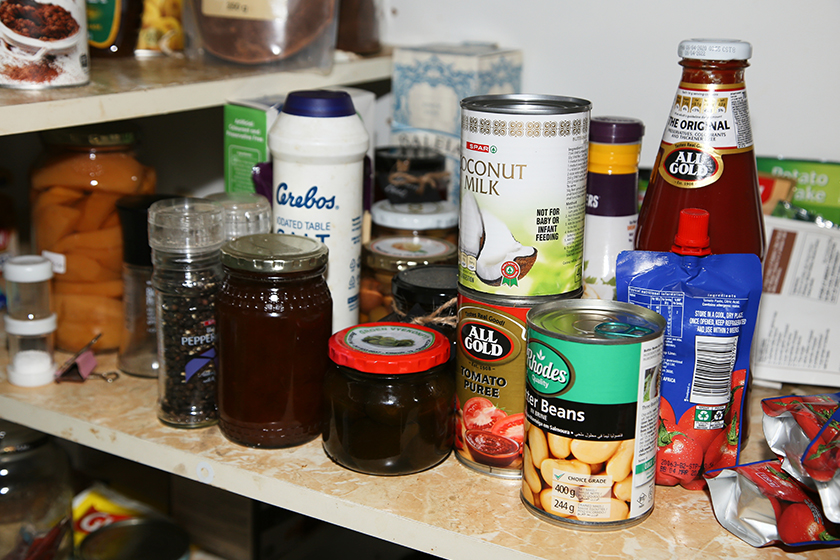Memory care in Suwanee, GA, stands as bastions of support and care for individuals navigating their golden years, especially for residents facing cognitive challenges, such as dementia or Alzheimer’s disease. Despite the commitment to providing a compassionate environment, one challenge that may emerge is food hoarding among residents. This article explores the nuanced and comprehensive strategies implemented by dedicated teams within our memory care community to address and mitigate food hoarding, ensuring the well-being of residents and fostering a truly nurturing environment.
Understanding the Complexity of Food Hoarding
Food hoarding is a behavior characterized by the excessive collection and storage of food items. This phenomenon is particularly prevalent among individuals with cognitive impairments, such as dementia or Alzheimer’s disease. They may experience memory loss, confusion, and difficulty in understanding their immediate surroundings. As a result, they might engage in food hoarding as a coping mechanism. The act of hoarding food provides a sense of control and familiarity in an environment that may otherwise feel disorienting. Our memory care community in Suwanee is designed to cater to the unique needs of residents with cognitive challenges. However, the unfamiliarity of the environment, combined with the progressive nature of memory-related conditions, can lead to increased anxiety and disorientation among residents. Food hoarding may be a response to this heightened emotional state, offering a semblance of security and comfort. Understanding the underlying reasons for food hoarding is crucial for developing effective mitigating strategies.
Tailored and Personalized Care Plans
Individuals with cognitive impairments may experience difficulties recognizing hunger or satiety cues. Food hoarding can be a response to this lack of recognition, as residents accumulate food without a clear understanding of their nutritional needs. This behavior may be an attempt to ensure a perceived scarcity of resources is addressed. Recognizing the unique individuality of each resident is paramount in addressing food hoarding effectively.
In Suwanee’s memory care community, residents benefit from personalized care plans that meticulously address their specific needs and challenges. For those exhibiting food hoarding tendencies, care plans are adapted to include interventions that resonate with the resident, promoting a profound sense of security and significantly reducing the likelihood of engaging in such behavior. Our Sensations senior living dining program places an emphasis on creating personalized nutritional plans for each resident. By tailoring meals to meet individual dietary needs and preferences, residents are more likely to find satisfaction in their dining experience. This personalized approach contributes to reducing anxiety and the need for food hoarding as residents receive meals that align with their tastes and requirements.
Cultivating Familiarity and Routine
Consistency and routine play pivotal roles in the well-being of residents in memory care. Suwanee’s memory care community implements structured daily routines, including regular meal times and familiar dining environments. By promoting a sense of familiarity, residents are less likely to feel disoriented or anxious, ultimately diminishing the urge to hoard food as a coping mechanism. In addition, our Sensations Dining program ensures a diverse and appealing menu, offering a range of culinary options that cater to different tastes and cultural preferences. This variety not only enhances the overall dining experience but also provides a sense of familiarity. Residents are less likely to feel the need to hoard food when they have access to a broad selection of comforting and familiar dishes, addressing one of the root causes of food hoarding.
Prioritizing Social Engagement
Isolation and loneliness can be contributing factors to the development of food hoarding behaviors. We prioritize social engagement as an integral part of our holistic approach to memory care. Sensations Dining goes beyond mere sustenance; it fosters culinary engagement and social interaction. Communal dining experiences, where residents come together to share meals, create a supportive and social atmosphere. Engaging in shared meals reduces feelings of isolation and loneliness, which are known triggers for food hoarding. The social aspect of dining promotes a sense of community, making residents more at ease and less inclined to hoard food. We regularly organize an exciting range of senior living events and activities that encourage interaction among residents, such as bingo nights and day trips, to help create a sense of community, reducing feelings of isolation and, consequently, decreasing the likelihood of food hoarding.
Addressing food hoarding within Suwanee’s memory care community demands a multifaceted and compassionate approach. Through continuous training and a steadfast commitment to open communication, we stand as beacons of care, dedicated to fostering a safe and nurturing environment for all residents, enriching your twilight years with dignity and compassion. Reach out to our community today!







